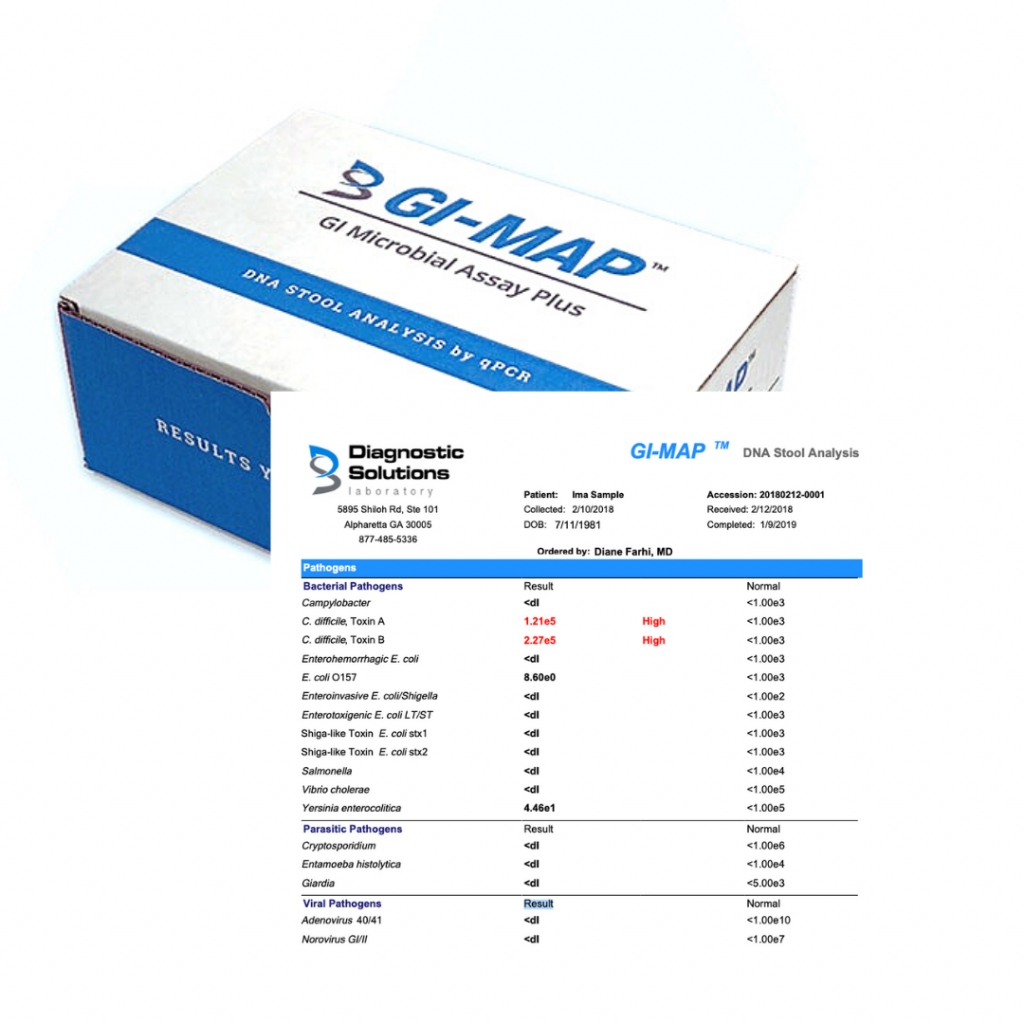 Our digestive system, often referred to as the “second brain,” plays a crucial role in maintaining overall health and well-being. It not only helps us break down food and absorb nutrients but also plays a vital role in supporting our immune system and mental health. However, an increasing number of individuals are experiencing gastrointestinal issues, and one condition that has gained attention in recent years is “Leaky Gut Syndrome.” In this article, we will delve into what leaky gut is, its potential effects on health, and how the GI-MAP test can aid in diagnosing and managing this condition.
Our digestive system, often referred to as the “second brain,” plays a crucial role in maintaining overall health and well-being. It not only helps us break down food and absorb nutrients but also plays a vital role in supporting our immune system and mental health. However, an increasing number of individuals are experiencing gastrointestinal issues, and one condition that has gained attention in recent years is “Leaky Gut Syndrome.” In this article, we will delve into what leaky gut is, its potential effects on health, and how the GI-MAP test can aid in diagnosing and managing this condition.
What is Leaky Gut Syndrome?
Leaky Gut Syndrome, also known as “intestinal permeability,” is a condition where the lining of the intestinal walls becomes compromised, allowing toxins, undigested food particles, and harmful bacteria to leak into the bloodstream. In a healthy gut, the intestinal lining acts as a barrier, selectively allowing nutrients to pass through while keeping harmful substances out. However, when this barrier is weakened, the permeability increases, leading to the leakage of unwanted substances into the bloodstream.
Several factors can contribute to the development of leaky gut, including poor diet, chronic stress, overuse of antibiotics, certain medications, and chronic inflammation. The condition is believed to be associated with various health issues, including digestive disorders, autoimmune diseases, allergies, skin conditions, and even mental health problems.
The GI-MAP Test: Unraveling the Mystery of Leaky Gut
The Gut-Immune Microbial Assay Plus (GI-MAP) test is an advanced diagnostic tool that assesses the health and composition of the gastrointestinal tract. It is a powerful molecular diagnostic test that provides detailed information about the gut microbiome, including the presence of pathogens, beneficial bacteria, and markers for gastrointestinal health.
The GI-MAP test utilizes advanced DNA sequencing technology to detect and identify specific microbial DNA fragments in a patient’s stool sample. This detailed analysis allows healthcare providers to gain valuable insights into the gut’s health and functionality, helping them diagnose various gut-related issues, including leaky gut syndrome.
How Does the GI-MAP Test Work?
The GI-MAP test is typically performed on a patient’s stool sample. Here’s how it works:
- Sample Collection: The patient is provided with a collection kit that contains a specialized container for collecting a stool sample. The sample is then sent to the laboratory for analysis.
- DNA Extraction: In the laboratory, the DNA is extracted from the stool sample, and the microbial DNA fragments are isolated.
- DNA Sequencing: The isolated DNA is then subjected to DNA sequencing technology, which can identify the presence of various pathogens, beneficial bacteria, and markers related to gastrointestinal health.
- Data Analysis: The sequencing data is analyzed and compared against a comprehensive database of known microorganisms and markers associated with gut health. The results are then compiled into a detailed report for healthcare providers and patients.
What Can the GI-MAP Test Reveal About Leaky Gut?
The GI-MAP test can provide valuable information that can help identify and manage leaky gut syndrome. Some key insights include:
- Identification of Pathogens: The test can detect the presence of harmful bacteria, parasites, and other pathogens that might contribute to gut inflammation and intestinal permeability.
- Assessment of Beneficial Bacteria: The GI-MAP test can identify the levels of beneficial bacteria in the gut, which are crucial for maintaining a healthy gut barrier.
- Intestinal Health Markers: The test can measure specific markers associated with gut health, such as calprotectin, secretory IgA, and zonulin, which can indicate inflammation and gut permeability.
- Detection of Imbalances: The test can reveal microbial imbalances that may contribute to gastrointestinal disturbances, inflammation, and ultimately, leaky gut syndrome.
Conclusion
Maintaining a healthy gut is essential for overall well-being, and leaky gut syndrome can significantly impact an individual’s health and quality of life. The GI-MAP test offers an advanced and comprehensive approach to understanding gut health and identifying potential issues like leaky gut. Armed with this knowledge, healthcare providers can devise personalized treatment plans to restore gut balance, improve intestinal integrity, and support overall health. If you suspect you may have leaky gut or other gastrointestinal issues, consult a qualified healthcare professional to discuss the possibility of undergoing the GI-MAP test and taking steps towards a healthier gut and a happier life.




